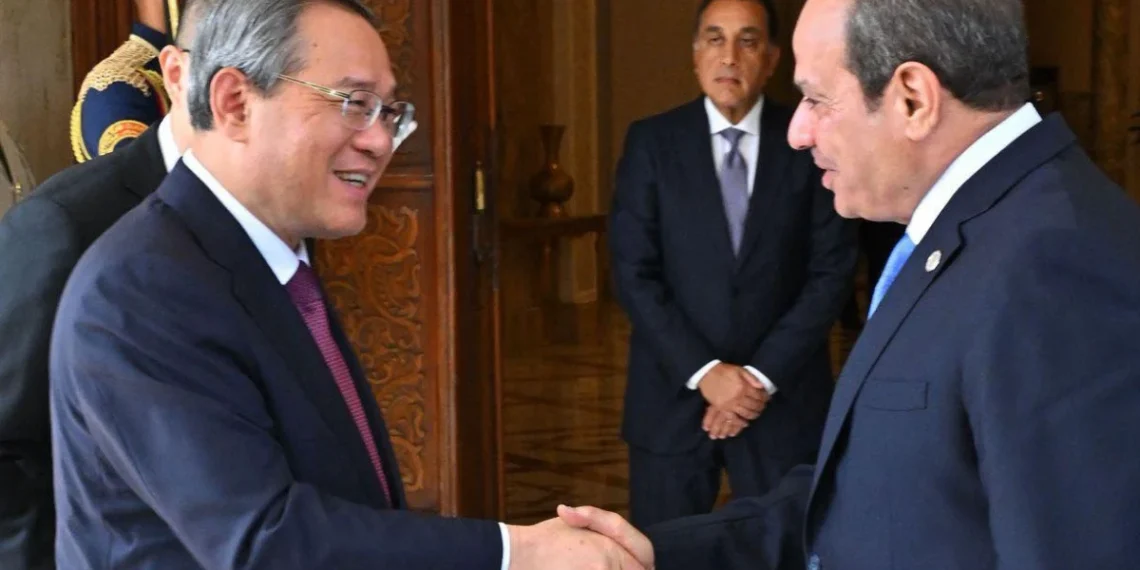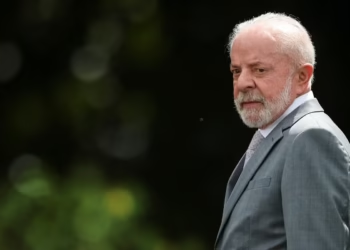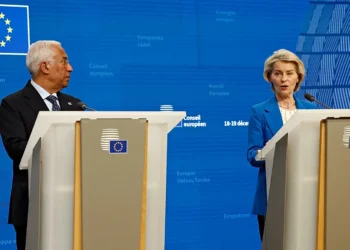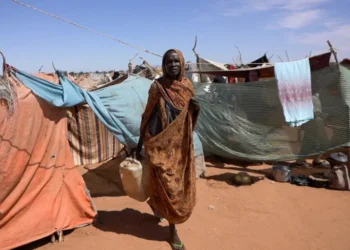CAIRO (Realist English). Chinese Premier Li Qiang arrived in Cairo this week to reinforce Beijing’s expanding partnership with Egypt, pledging deeper economic and security cooperation and signaling alignment on key regional crises, particularly the war in Gaza.
Upon landing at Cairo International Airport, Li evoked the legacy of the ancient Silk Road, positioning Egypt as a pivotal gateway in China’s modern Belt and Road Initiative (BRI). “This partnership stands on centuries of connectivity and a shared vision for the future,” Li said, referencing China’s multibillion-dollar investments in Egyptian infrastructure.
In talks with Egyptian President Abdel-Fattah al-Sisi, both leaders agreed to enhance cooperation in trade, finance, manufacturing, green energy, and cultural exchange. Li also committed to facilitating further Chinese investment, especially in strategic projects such as the New Administrative Capital’s Iconic Tower — Africa’s tallest skyscraper — and upgrades to Egypt’s power grid and transport infrastructure.
The Suez Canal, central to global maritime trade and critical to China’s access to Europe and Africa, remains a core interest for Beijing. Sisi welcomed China’s economic engagement, calling Beijing a “key partner in Egypt’s economic future,” with particular interest in debt swaps, renewables, and electric vehicle development.
Li’s visit comes at a time of high regional tension, with Cairo rejecting a U.S.-linked proposal to resettle displaced Palestinians in the Sinai Peninsula — a move it views as a direct threat to its sovereignty. China, in line with Egypt, opposes any forced displacement from Gaza. Li reaffirmed Beijing’s readiness to work closely with Egypt on securing a Gaza ceasefire and delivering humanitarian aid.
Observers note that China is using Egypt’s strategic geography to strengthen its diplomatic and commercial footprint in the Middle East and Africa, as U.S. focus shifts elsewhere. According to Andrea Ghiselli of the University of Exeter, “Egypt naturally is a critical interlocutor” for China, not only due to its regional weight but also its traditional ties to Washington.
China’s engagement is also extending into the military sphere. Joint drills, such as the recent “Eagles of Civilisation 2025” air exercise, and Egypt’s acquisition of the HQ-9B air defense system mark a significant pivot in Cairo’s defense alignment — traditionally West-oriented — towards Beijing.
With Egypt now a full member of BRICS, analysts like John Calabrese of the Middle East Institute suggest Cairo is seeking to rebalance its strategic dependencies. “Frustration with U.S. policy, particularly on Gaza, has opened new space for Chinese influence,” he noted.
As Washington courts Africa with renewed trade overtures, Li’s high-profile visit underscores Beijing’s intention to anchor its presence in Egypt — a country increasingly central to China’s long-term plans for regional influence and global positioning.


















